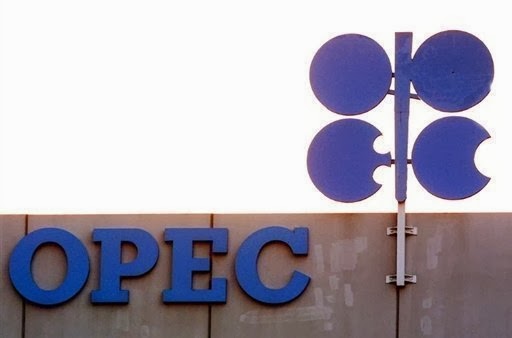OPEC’s oil output has risen in January from December’s 2-1/2-year low, due to a partial recovery in Libyan supply and higher shipments from Iraq and Iran, a Reuters survey found on Friday.
Output from the Organization of the Petroleum Exporting Countries
averaged 29.94 million barrels per day (bpd), up from a revised 29.63
million bpd in December, according to the survey based on shipping data
and information from sources at oil companies, OPEC and consultants.
The survey illustrates the potential for OPEC supply to rebound in
2014 if Libya, Iraq and Iran sustain higher output. That could put
pressure on oil prices without cutbacks from other members, such as
Saudi Arabia.
“Over the next few months, the big challenge for OPEC will be to
respond appropriately to any further normalisation of oil production in
Libya,” said Carsten Fritsch, analyst at Commerzbank in Frankfurt.
In January, higher supply in Libya, more Iraqi exports and a further
small rise in Iranian shipments outweighed reductions in Angola and
Saudi Arabia. December production in Saudi Arabia, Libya and the United
Arab Emirates was revised.
OPEC’s December output was the lowest since May 2011, when the group
pumped 28.90 million bpd, according to Reuters surveys. Despite
January’s increase, supply is below OPEC’s nominal target of 30 million
bpd for a fourth straight month.
OPEC’s biggest increase came from Libya, as the El Sharara field
restarted in early January after protesters ended a blockade. Still,
output remains less than half of the 1.4 million bpd the country was
pumping last year, and further recovery is by no means assured.
Iraq’s oil exports in January rose to 2.45 million bpd, due to higher
shipments from southern ports despite some disruption from bad weather.
Exports of Kirkuk crude through northern Iraq declined.
Iranian supply to market was estimated at 2.75 million bpd, up 50,000
bpd. The modest pickup is the third consecutive monthly rise, according
to sources who track tanker movements, and adds to signs that the
easing of sanctions on Tehran is helping it sell more crude.
The largest decline in OPEC was from Angola, whose output dropped
120,000 bpd because of reduced shipments of several crude streams
including Girassol, Cabinda, Saturno and Palanca.
Saudi Arabia, industry sources say, trimmed output due to a reduced
requirement for crude to fuel domestic power plants and lower demand
outside the country – although December’s supply was higher than earlier
thought.
“Exports have been lower than in December, with refinery runs flat
and direct burn a bit lower,” said an industry source who tracks Saudi
output. “So on balance, supply is down.”
The kingdom has cut supplies from 10.05 million bpd in August, the
highest since records began in 1980, according to figures from the U.S.
Energy Information Administration.

No comments:
Post a Comment